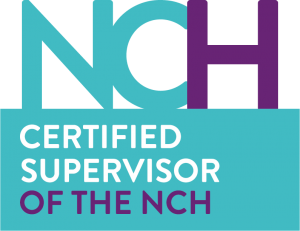Relaxation
READ THE FOLLOWING INSTRUCTIONS CAREFULLY
BEFORE WATCHING THE VIDEO.
(Available on Desktops Only)
DO NOT:
NEVER watch while driving, operating machinery or doing any activity that needs your attention. This has been designed to assist you to take a moment for yourself and to help you relax. If you have any medical condition or concerns then: DO NOT FOLLOW THESE INSTRUCTIONS.
The following instructions will help you take 30 seconds for yourself and help you to relax and find peace in a frantic world.
1. Sit comfortably.
2. Take a slow breath in lasting 3 seconds - pause 1 second.
3. Exhale slowly for 5 seconds.
4. Breathe normally and gently whilst watching the candle (link for mobile devices).
5. Once it has finished - smile and continue with your day.
Stress at work
Stress at Work – does I have to have it?
I had a conversation recently with a close family member who visited Cornwall on holiday. It was a wonderfully warm day, albeit in the height of winter, and it seemed like city living was nothing more than 1,000,000 miles away. A quick round of golf, followed by coffee and then a gentle stroll to the nearest Cornish fishing village for some lunch. It was over lunch that we discussed how busy lives seem to be getting! The number of things that we had to remember on a day-to-day basis just in our personal lives for example, car tax and MOT followed by a major service including replacement of all the brake pads and discs at the front, cancel the parcel delivery, arrange school holidays and deal with the recent complete breakdown of the works laptop following a routine update. Work was busier, the commute into London daily followed by changing projects, prioritised so that closing deadline could be met in a timely fashion with a workload looming that looked like the size of Mount Vesuvius… So what exactly is it about modern living? Now don’t get me wrong I’m a big fan of new technology that makes our lives so much simpler in some ways, but then doesn’t it also create and contribute the stress that we tried to get rid of from our lives? As technology replaces jobs we seem to be living in a climate where individuals have much more responsibility, a far bigger workload, tighter deadlines in a society which no longer has patience, and shrinking budgets to the point where it is almost impossible to get the job done well and meet the quality specification.
It’s only right that we understand the definitions of stress. Psychologists categorise stress into 3 different types:
- Acute stress this is typically caused by the daily demands and pressure of living. It is the most common form of stress and it does bring feelings of excitement. Too much acute stress over a longer term can bring tensions resulting in headaches and other physiological symptoms such as anger, anxiety and even depression. Discuss symptoms can be stomach upset, dizziness, heart palpitations, shortness of breath, hypertension and bowel disorders
- Episodic stress is the term given to acute stress and is experienced frequently. When you are experiencing episodic stress symptoms it is likely that you will trigger depression, anxiety disorders and find yourself ceaselessly worrying.
- Chronic Stress develops due to long-term exposure to stressors such as a traumatic experience, unhappy relationship, family issues, poverty and chronic illness to name a few. Chronic stress is said to “destroy the mind, body and spirit.”
The following figures are taken directly from the HSE website:
- The total number of cases of work-related stress, depression or anxiety in 2013/14 was 487 000 (39%) out of a total of 1 241 000 cases for all work-related illnesses.
- The number of new cases of work-related stress, depression or anxiety in 2013/14 was 244 000.
- The rates of work-related stress, depression or anxiety, for both total and new cases, have remained broadly flat for more than a decade.
- The total number of working days lost due to stress, depression or anxiety was 11.3 million in 2013/14, an average of 23 days per case of stress, depression or anxiety
- The industries that reported the highest rates of total cases of work-related stress, depression or anxiety (three-year average) were human health and social work, education and public administration and defence.
- The occupations that reported the highest rates of total cases of work-related stress, depression or anxiety (three-year average) were health professionals (in particular nurses), teaching and educational professionals, and health and social care associate professionals (in particular welfare and housing associate professionals).
Discovering that 39% of all work-related illnesses were due to stress and that 244,000 new cases of work-related stress were diagnosed last year I decided to see what the NHS reported about stress. They say that “anxiety, stress and depression are behind one in 5 visits to a GP” caused by work pressure, lack of support from managers and work-related violence and bullying.
So who is responsible for noticing stress? It is my opinion that we are all responsible for spotting stress. As a leader and manager I was always aware of the pressure that my staff were under and of course ensuring that I was noticing my manager and my peers. If you think that a colleague is suffering from stress, have the courage to ask them, maybe not outright, but in a way which will get an honest, straightforward response. Some of the warning signs are heavy smoking and drinking more than normal, anger and irritation – sounds familiar?

More information about stress
In 1908 the psychologists Roberts M Yerkes and John D Dodson gathered empirical evidence which allowed the relationship between arousal and performance to be graphed. From this we get the following inverted U-curve:
When we talk about arousal, this is generally referring to the amount of motivational effect which is applied. This arousal is acknowledged to manifest in 2 forms; as both internal and external drivers, those things that are generated within ourselves and those things which we feel compelled to motivate us. The resulting curve is generated due to arousal versus performance equaling stress, for the main we do not even realise that we are stressed and it is this positive stress which increases our performance which actually makes us feel happy, or in the flow. The critical issue is once we begin to feel panicky, upset, worried, out of our depth and even tired or burnt out. It is then that we begin to lose our performance edge and it is this acute, but more so chronic, stress which is bad for our health and reduces our quality of life.
What causes stress?
Of course people handle stress very differently due to us being individual. The one constant is that the pressures of modern life seem to be very demanding on us. There is no hidden secret, we are all working longer hours than ever before, with increasing workloads, with greater responsibilities, with greater expectations of performance and output and yet our stakeholders, managers, team leaders or our staff continue to place undue pressure upon us. There is evidence to suggest that stress is the leading cause of sick leave in the UK at the moment. Things are not going to be changing in the future, in fact this issue is likely to get worse.
What are the symptoms of stress?
What are the symptoms of stress?
- Increased body tension
- Inability to relax
- Insomnia
- Digestive problems
- Reduction in appetite or overeating, especially comfort foods
- Increased drinking
- Increase in the number of cigarettes smoked
- Decreased sex drive/libido
- Impulse purchases and overspending
- Aggressive behaviour including road rage
- Easily irritated especially by the ones we love
- Easily agitated by small things
- Unable to make decisions
- A change in time management behaviour, making you rushed or late
- Unable to concentrate, for example unable to sit still, watch TV or read a book
- Substance abuse
- Feeling out of control, unable to cope
- Excessive emotion leading to bursts of crying or even anger
How can I begin to reduce the stress in my life?
I will work with you in order to eliminate and reduce this unnecessary tension and overwhelming kind of feeling. In just a few short hours of therapy you can and be the person you once were, or indeed wish you could be again.










